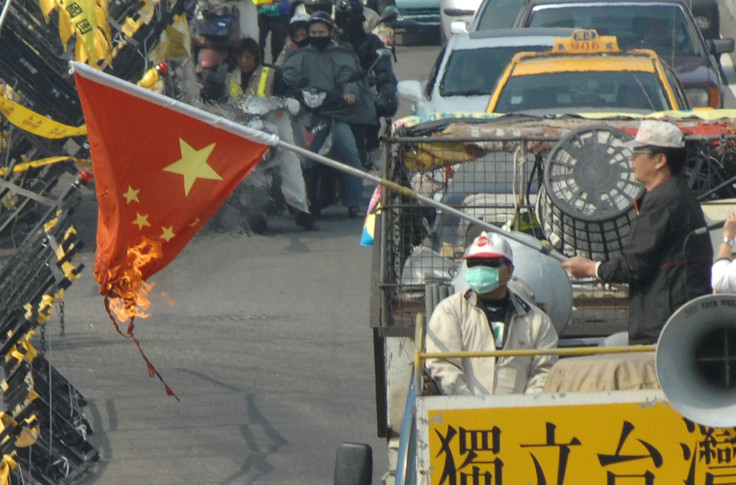Taiwan Conducts Military Drills On Kinmen Islands Off China’s Coast Following China’s Live-Fire Exercises

Taiwan conducted military drills Tuesday near the Chinese coast as a display of its determination to keep Chinese threats at bay. The latest drills by Taiwan follow China’s live-fire exercises in the region just days after Taiwan elected independence-leaning Tsai Ing-wen as the country’s president on Jan. 16.
The head of the defense command for the Kinmen county, located just off the southeastern coast of mainland China, said the drills included beach landing exercises and simulated attacks by the navy's elite "frogman" commandos, which displayed Taiwan’s defense capabilities, the Associated Press reported. Hau Yi-he, Kinmen’s commander, told AP that Taiwanese forces would continue the routine drills even though there had been no unusual military movements by the Chinese military since the election in Taiwan.
"We have been monitoring their [China's] military movements. So far, it has remained normal," Hau told AP.
The earlier exercises by Chinese forces were conducted by the 31st Group Army, which is based in the city of Xiamen, which lies straight across a narrow waterway from Taiwan. The army group has been charged with responding to contingencies that involve Taiwan.
Beijing claims Taiwan belongs to China and has, in the past, threatened to use force against the island nation. Over the past few years, however, China has promoted the idea of a peaceful unification between the two countries, instead of threatening invasion.
But China has still not let go of its military threats completely, such as a law passed in 2005 which spells out conditions under which it could attack Taiwan. Although the law does not provide a timetable for unification, Chinese President Xi Jinping has said he did not want future generations to deal with the independence issue.
A Chinese commentator, retired general Luo Yuan, said in an article in the Global Times Monday: “As long as 'peace' has not died, we will give 100 percent,” adding: “But if the 'Taiwan independence' elements force us into a corner, then we have no other choice but ‘unification by force.’”
Last week, Tsai’s Facebook page was flooded with a series of posts demanding Taiwan be returned to China’s control. However, Tsai gave a staid response to the posts: “The greatness of this country lies in how every single person can exercise their rights.”
© Copyright IBTimes 2025. All rights reserved.






















